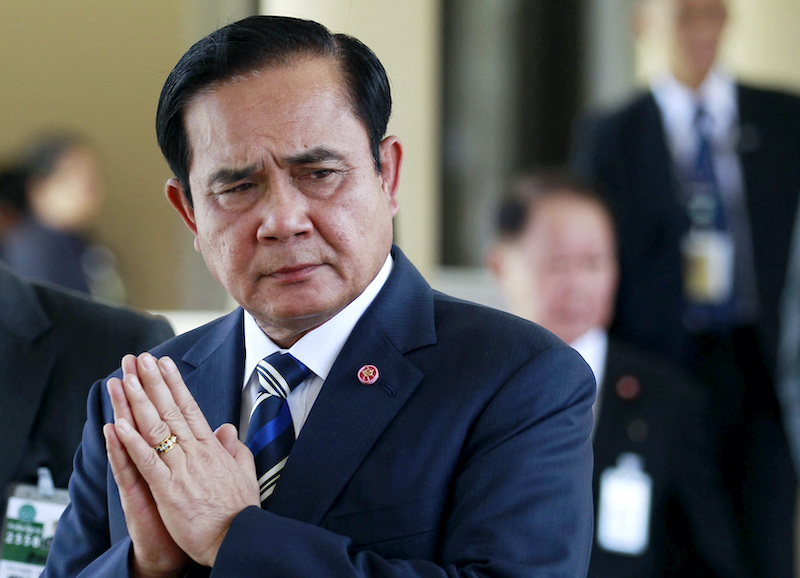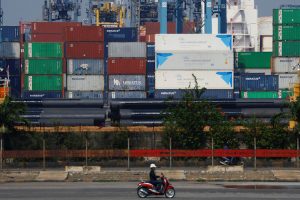Thai Prime Minister Prayut Chan-ocha has vowed to press ahead with development projects after the country’s Constitutional Court ruled on Friday he had not exceeded the maximum eight years allowed in office.
The judges 6-3 ruling is a boost for Prayut, a staunch royalist and former army chief whose time in office has been plagued by efforts to unseat him by political rivals who opposed the coup he staged in May 2014 and subsequent efforts to retain power.
However, the court ruling that his tenure as national leader legally started in April 2017, when the kingdom’s current constitution was enacted, also signals an end to his time at the top, because he would only be able to serve two years as PM should he win an election that must be held before May next year.
The ruling will allow Prayut to preside over the APEC summit in mid-November, which is likely to attract global leaders such as Presidents Joe Biden and Xi Jinping to Bangkok.
However, his party is likely to face a major battle to retain power against the main opposition party Pheua Thai, dominated by the family of former premier and arch-rival Thaksin Shinawatra.
Popularity Waning
Despite portraying himself as a reluctant leader wanting to hold power only briefly, Prayut served as prime minister of a junta until an election in 2019, after which parliament chose him to remain premier.
Prayuth, 68, had been suspended from office while the court deliberated the case, which he said had given him time to reflect.
“This past month I have realised that I need to use my limited time in government to push important projects to their realisation, for the progress of the country and for the future of our children,” he said in a Facebook post after the ruling, promising big infrastructure upgrades.
Prayuth is among the longest-serving premiers in Thailand, a country that has seen more than 10 coups in the past century and had numerous leaders from the military.
An opinion poll in early August showed his popularity waning, with nearly two-thirds of respondents wanting him to leave office, while a third said the court should decide.
Pheua Thai, the third political entity created by billionaire former PM Thaksin – who was ousted in coup in 2006 – said the ruling showed it was time to reform the court to create “appropriate checks and balances”.
“The verdict does not cleanse Prayut. The opposition sees Prayut as someone who wants to maintain power in every way possible,” it said in a joint statement by the opposition bloc.
“He also broke his promise to the people from the beginning when he said he won’t stay long.”
Scores of protesters gathered in central Bangkok to denounce the ruling and called for opposition parties and activists to join forces in demonstrations to remove Prayut.
Bank of Thailand Bids to Bolster Baht
Meanwhile, Thailand‘s central bank said on Saturday it entered the foreign exchange market to reduce currency volatility, as the Thai baht hovered at 16-year lows against the dollar.
The baht has fallen 11.7% against the dollar this year, which the central bank said had been driven by dollar strength.
However, the weighted baht index against other currencies has been stable, while the country’s external position and banking system remained strong, Deputy Bank of Thailand Governor Mathee Supapongse told reporters.
“We’ve entered the market sometimes to slow down volatility (in the baht),” he said, adding the BOT had no target for baht levels.
A fall in Thailand‘s international reserves was not because of currency intervention but rather asset valuations, he said.
Despite wide Thai-US rate differentials, Thailand has attracted capital inflows, Mathee said.
Foreign investors have bought 150 billion baht ($3.97 billion) of Thai shares so far this year but sold 33 billion baht of bonds.
Governor Sethaput Suthiwartnarueput said gradual and measured policy tightening was suitable to support Thailand‘s still slow economic recovery, but he was ready to adjust if needed.
On Wednesday, the BOT raised its key interest rate by a quarter point to 1.00% to tame 14-year high inflation.
- By Jim Pollard with Reuters.
ALSO SEE:
Bank of Thailand Hikes Rates for First Time in Four Years
Thailand to Ban Crypto Payments, Citing Threat – Bangkok Post
Thailand, Saudis Agree on Labour Plan – Bangkok Post
Thailand Gives Green Light To Large-Scale EV Shift
























